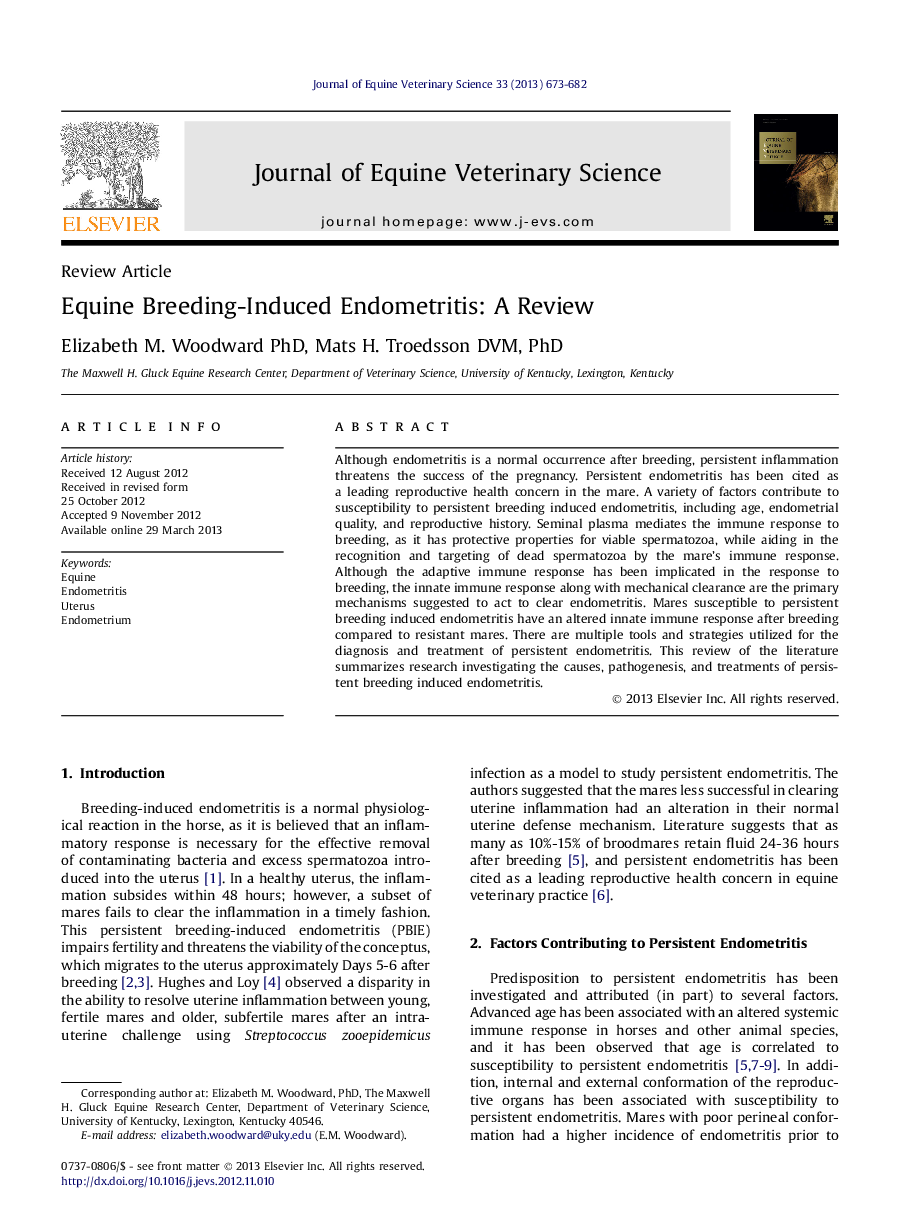| Article ID | Journal | Published Year | Pages | File Type |
|---|---|---|---|---|
| 10961674 | Journal of Equine Veterinary Science | 2013 | 10 Pages |
Abstract
Although endometritis is a normal occurrence after breeding, persistent inflammation threatens the success of the pregnancy. Persistent endometritis has been cited as a leading reproductive health concern in the mare. A variety of factors contribute to susceptibility to persistent breeding induced endometritis, including age, endometrial quality, and reproductive history. Seminal plasma mediates the immune response to breeding, as it has protective properties for viable spermatozoa, while aiding in the recognition and targeting of dead spermatozoa by the mare's immune response. Although the adaptive immune response has been implicated in the response to breeding, the innate immune response along with mechanical clearance are the primary mechanisms suggested to act to clear endometritis. Mares susceptible to persistent breeding induced endometritis have an altered innate immune response after breeding compared to resistant mares. There are multiple tools and strategies utilized for the diagnosis and treatment of persistent endometritis. This review of the literature summarizes research investigating the causes, pathogenesis, and treatments of persistent breeding induced endometritis.
Keywords
Related Topics
Life Sciences
Agricultural and Biological Sciences
Animal Science and Zoology
Authors
Elizabeth M. PhD, Mats H. DVM, PhD,
